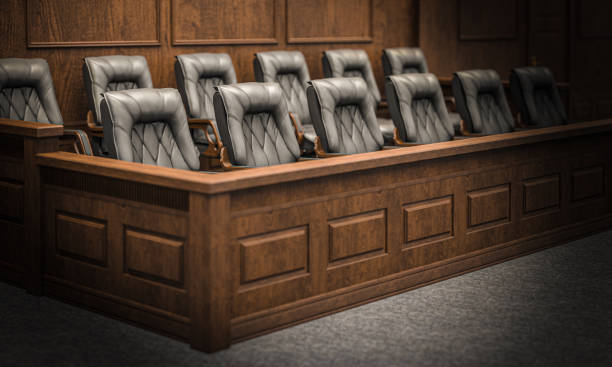
Freedom of Speech vs. Slander: Navigating the Line in Modern Culture
New York. The city that never sleeps, but boy, does it talk. From the corner bodegas to the neon-lit Times Square billboards, opinions flow faster than subway trains at rush hour. Everyone’s got a mic, a platform, a social handle—somewhere between a tweet and a New York. The city that never sleeps, but boy, does it talk. From the corner bodegas to the neon-lit Times Square billboards, opinions flow faster than subway trains at rush hour. Everyone’s got a mic, a platform, a social handle—somewhere between a tweet and a TikTok, freedom of speech lives and breathes. But here’s the kicker: sometimes, that freedom hits a wall called slander. And oh, when it hits, it hits hard.
In the digital age, the lines between speaking your mind and crossing into legally dangerous territory are blurrier than a rainy Manhattan morning. This isn’t just a law school lecture—it’s real life. Someone says something about you online, it spreads like wildfire, and suddenly, you’re facing a PR nightmare or worse: legal action.
The Cultural Pulse: Free Speech in a Noisy World
Freedom of speech is America’s cherished playground. It’s in the Constitution, ingrained in the DNA of debate, protest, and even late-night comedy roasts. But here’s the paradox: Freedom of speech is America’s cherished playground. It’s in the Constitution, ingrained in the DNA of debate, protest, and even late-night comedy roasts. But here’s the paradox: free speech doesn’t mean free-for-all. It doesn’t give anyone the right to recklessly tarnish someone else’s reputation. Enter slander, the shadowy twin of the First Amendment.
Slander, technically, is spoken defamation—false statements that harm a person’s reputation. Libel is its written cousin. In a city like New York, where gossip is practically a public service, the distinction matters more than ever. A barista ranting about a manager on Slander, technically, is spoken defamation—false statements that harm a person’s reputation. Libel is its written cousin. In a city like New York, where gossip is practically a public service, the distinction matters more than ever. A barista ranting about a manager on Instagram might feel cathartic, but legally? That could be a lawsuit waiting to happen.
Take, for instance, the story of Lila Rodriguez, a budding fashion Take, for instance, the story of Lila Rodriguez, a budding fashion influencer. She posted a video accusing a boutique of shady business practices. The video went viral. Within 48 hours, lawyers were involved. The boutique’s reputation was on the line, and so was Lila’s. The lesson: your freedom to speak doesn’t shield you from responsibility.
The Legal Tightrope
Legally speaking, freedom of speech is vast but not infinite. Slander law exists to protect people from false spoken statements that cause tangible harm—loss of business, emotional distress, or public humiliation. In essence, it’s society saying: “Sure, you can speak, but don’t weaponize lies.”
One key factor courts consider is truth. If what you say is true, you’re generally safe. But exaggeration, opinion framed as fact, or hearsay? That’s where the trouble starts. Context also matters—public figures face a higher bar for proving slander. If a celebrity sues for defamation, they must prove “actual malice,” meaning the statement was made knowing it was false or with reckless disregard.
Culture Clash: When Opinions Become Offensive
Culture has its own courtroom. Culture has its own courtroom. Social media platforms often act as judge, jury, and executioner. A tweet that might technically fall under free speech can ignite outrage, cancel platforms often act as judge, jury, and executioner. A tweet that might technically fall under free speech can ignite outrage, cancel culture backlash, and viral condemnation. This cultural enforcement sometimes surpasses legal consequences, illustrating that words carry weight beyond the courtroom.
Consider the recent wave of debates surrounding workplace calls, Consider the recent wave of debates surrounding workplace calls, influencer controversies, and political commentary. The line between expressing an opinion and defaming someone is thinner than the line between a subway and the street. Yet society demands accountability, whether legally or socially.
Interesting Facts You Didn’t Know
-
The term “slander” comes from the Old French esclandre, meaning “scandal.” Linguistically, scandal and slander are practically cousins.
-
Slander cases in the U.S. are rare compared to the flood of online complaints, mostly because proving spoken defamation requires witnesses or recordings.
-
Public figures historically have a harder time winning slander suits than private citizens. Think of it as the legal world acknowledging the reality of being in the spotlight.
Quotes That Hit Hard
-
“Freedom of speech is a double-edged sword—it protects your voice but not your reputation if you misuse it.” – Anonymous legal analyst
-
“Words can build bridges, but false words can burn them faster than fire in a dry park.” – Social commentator
Tips for Staying on the Right Side of the Law
-
Think Before You Speak: If it’s on If it’s on social media, ask: Is this fact or opinion? Could it harm someone if false?
-
Document Sources: If you make claims, have evidence. Screenshots, receipts, or recordings can protect you.
-
Stay Civil: Avoid emotionally charged statements that could be misinterpreted as malicious.
-
Consult Professionals: Lawyers, PR experts, and content managers are your safety net when stakes are high.
FAQ: Freedom of Speech vs. Slander
Q1: Can I say anything online and claim free speech?
Q2: What’s the difference between slander and libel?
Q3: Are public figures more vulnerable to slander?
Q4: How can I protect myself from being sued for slander?
How to Navigate Free Speech Responsibly
Step 1: Pause and Reflect – Ask yourself, “Is this true? Could it hurt someone?”
Step 2: Clarify Your Intent – Make it clear if it’s your opinion.
Step 3: Fact-Check – Gather evidence or sources before speaking or posting.
Step 4: Consider the Medium – Spoken words can escalate faster than written ones online.
Step 5: Seek Advice – Legal counsel or a trusted content advisor can help if stakes are high.
The Bottom Line
Freedom of speech isn’t a wild west—it’s a responsibility. Culture, law, and digital platforms enforce boundaries differently, but the principle is universal: words matter. In an era where a single statement can become global news in minutes, understanding the difference between honest opinion and harmful slander is more than academic—it’s survival.
Suggested for You

Inside Amazon's Hiring Process: What Happens Before You Start
Reading Time: 5 min
A deep dive into Amazon's pre-hire process, including appointment scheduling, background checks, dru...
Read More →
What Happens If You Miss Jury Duty? Consequences, Culture, and Courtroom Myths
Reading Time: 5 min
Wondering what happens if you skip jury duty? ContentHub.Guru breaks down the legal consequences, cu...
Read More →
Inside Amazon's Sortation Centers: The Unsung Heroes of E-Commerce Logistics
Reading Time: 5 min
Discover the vital role Amazon's Sortation Centers play in the e-commerce ecosystem. Learn how they ...
Read More →
What Happens If You Miss an Interview? A Raw Look at Regrets, Redos, and Redemption
Reading Time: 5 min
Missing an interview isn’t the end of your career. Learn what really happens, how to recover, and th...
Read More →
Comments